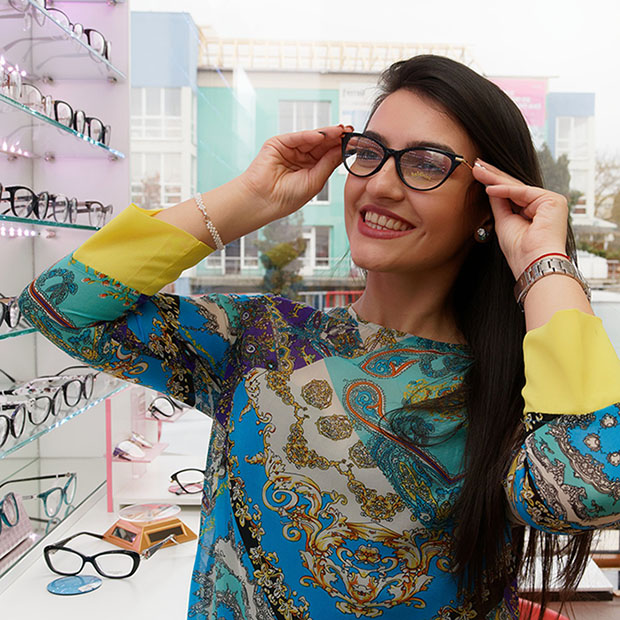A Quick Round of Optometry FAQs

We hear a lot of the same questions from our patients, so let’s address them in an FAQ!
You’d be surprised how many patients wonder the same things about eye health and optometry. If you’ve been too shy to ask one of these but have always wondered, you won’t have to anymore!
5. Is staring at my computer screen all day at work bad for my eyes?
Many people experience digital eye strain after long hours in front of a screen (whether desktop or mobile). It won’t result in long-term damage, but the short-term symptoms can be unpleasant enough on their own. A great trick to avoid the effects of eye strain is to follow the 20-20-20 rule. Every twenty minutes, simply look away from the screen and spend twenty seconds focusing on something at least twenty feet away to give your eyes a break! You can set timers until it becomes a habit.
4. What are those stringy things that sometimes float across my vision?
We call these odd transparent caterpillar-looking things “floaters.” The older we get, the more the protein fibers in our eyes clump together, which makes them less transparent. Sometimes they drift into the path of our field of vision and cast shadows on our retinas. They can be distracting, but a few floaters are nothing to worry about. However, if you suddenly notice a lot of them, get to an eye doctor fast; it could be a symptom of retinal detachment.
3. Will my eyes get weaker if I wear glasses?
This is a pretty common myth. If we need glasses, then not wearing them won’t prevent our visual acuity from getting worse. It only seems that way because the difference between sharp, detailed vision and fuzzy vision is obvious, but the difference between fuzzy and fuzzier vision isn’t as noticeable. So don’t miss out on the benefits of glasses based on this idea!
Another reason people might believe this myth is that new glasses or contacts sometimes take a few days to get used to, and that period can include symptoms like headaches and eye strain. That isn’t because your eyes are getting worse, they’re just adapting! (Our eyes are pretty cool, even when they need corrective lenses.)
2. What does it mean to have 20/20 vision?
When we determine a patient’s visual acuity, we use fractions. A person who has 20/20 vision can see details pretty clearly from a distance of 20 feet. The bigger the bottom number gets, the worse the patient’s vision is compared to that baseline. Some people are even lucky enough to have better vision than 20/20! However, there’s more to good eyesight than 20/20 vision, which is why eye exams are so important.
1. How often should I schedule an eye exam?
Eye exams aren’t one-size-fits-all, but once every other year is a good schedule for patients younger than 60 who don’t need new glasses or contact lens prescriptions. For older patients and patients with risk factors, once a year is better. Keep in mind that the eye doctor is often the first one to spot early signs of chronic diseases like hypertension, high cholesterol, and diabetes! One more reason to stay on top of those appointments!
Your Question Wasn’t on the List? Just Ask!
If we didn’t answer your most pressing eye health or optometry questions here, we’d love to fix that, whether at your next appointment or if you just give us a call or send us an email! We want you to have all the information you need to make educated decisions about your vision health.